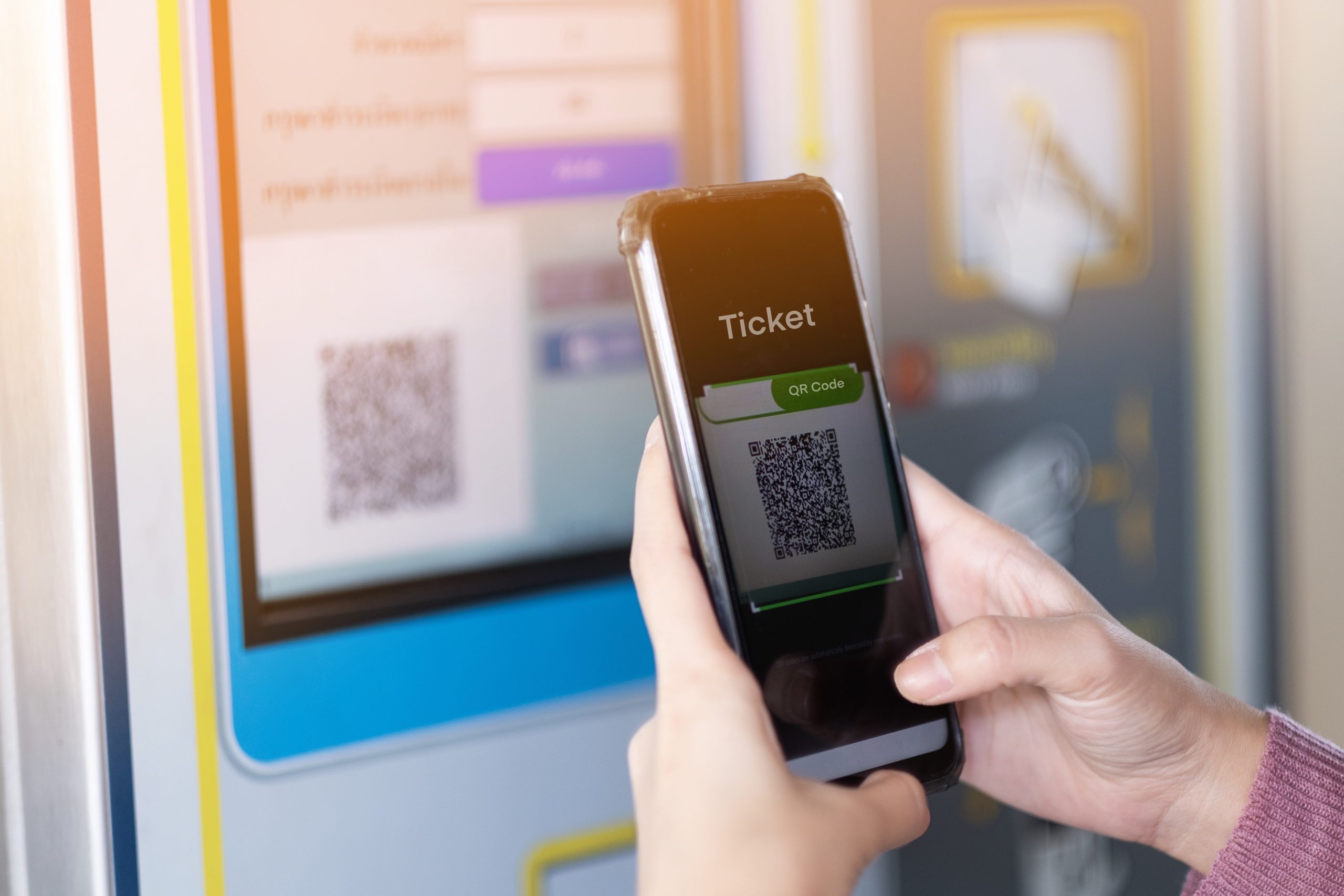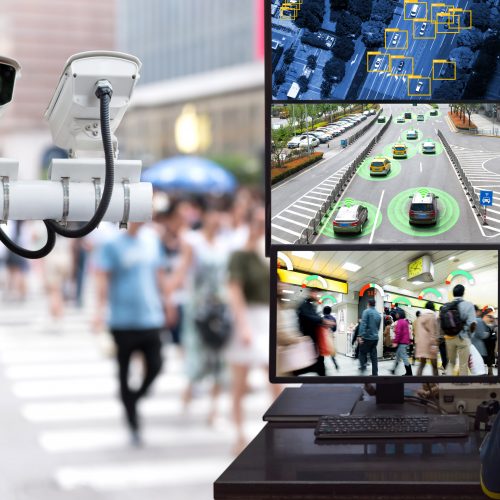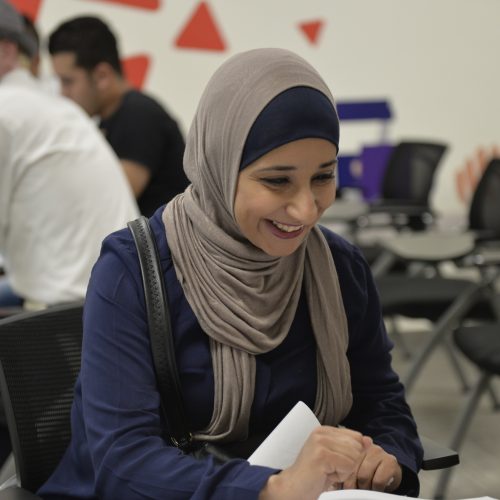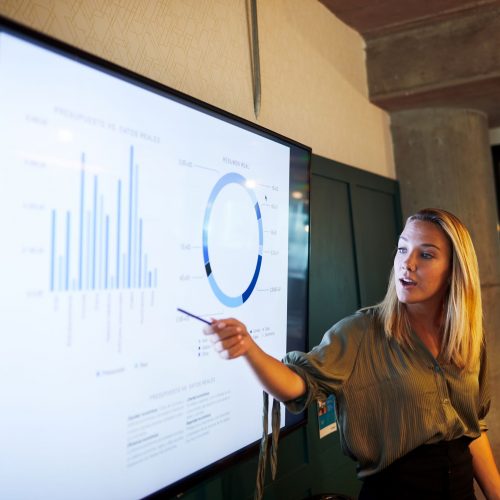Context and Policy Overview
Built upon its strong physical and digital infrastructure, the city of Taipei hoped to stimulate the development of smart public services, as well as promote technological innovations in the private sector.[1] However, it encountered some challenges at the outset of its smart journey.
On the other hand, start-ups or SMEs, who harness technologies innovatively, usually had limited contact in the municipal departments that could help them better understand the city’s needs. They also lacked the opportunity to demonstrate the feasibility of their technical solutions in the urban context.
Therefore, in 2016, Taipei established the “Taipei Smart City Project Management Office” (TPMO), [2] which has played a leading role in enabling cross-departmental collaboration on smart city projects.[3] Most importantly, the TPMO acts as a liaison between municipal departments and industry players. Its main goal is to provide the departments with a contact window to innovative technologies and catalysing the adoption of smart technologies. Among them, changing the core concept of the city government culture is one of the priorities, and is committed to making the city government able to accept new concepts and ideas.
Implementation
The TPMO is operated by the Taipei Computer Association (TCA) and supervised by the Department of Information Technology (DOIT), whose commissioner is the CEO of the office.[4] Its key roles entail 1) business matchmaking between municipal departments and tech developers, 2) overseeing the POC implementation, 3) facilitating communication between city officials and tech developers, and 4) coordinating municipal departments; other tasks include holding marketing campaigns and seminars, consulting think tanks, etc. The annual budget of the TPMO’s operation is about NT$30 million (US$1.07 million),[5] and the bulk of the budget is allocated to human resources.
Moreover, the TPMO comprises two branches: the “smart city promotion branch” and the “marketing branch”. It currently has 20 employees, with the majority originating from the TCA and a few experts from think tanks and academia.
The smart city promotion branch works as a communication facilitator between city departments and private companies and provides insights to high-ranking officials and policymakers. Meanwhile, the marketing branch is responsible for organising events and seeking international cooperation.
- Two stages of the TPMO’s development
Stage 1: Top-down and bottom-up approaches[6],[7]
Two approaches to solicit proposals from industry players were adopted when the TPMO kicked off in 2016:
- Top-Down Approach: this approach aims to incorporate smart components and smart city concepts into municipal departments’ undergoing or forthcoming projects. Based on each department’s development roadmap and specific needs, the TPMO will match adequate industry players with departments. The TPMO also engages in understanding municipal departments’ smart city goals, proactively seeking potential suppliers, and providing empirical fields for proof of concepts (POC).
- Bottom-Up Approach: in contrast to the top-down approach, the bottom-up approach receives proposals from industry players. The TPMO selects the ones that align with the smart city policy framework and supports their POC in Taipei. The results of the demonstration will then be submitted to the city government for feasibility assessment. The TPMO aims to catalyse the creation of value-added smart public services and share them with other cities.
More than 100 proposals were received over three years until 2019, but only one-third of them successfully made it to the POC due to financial, technical, and administrative difficulties. Even fewer of the proposals that made it to the POC were finally turned into actual smart city projects. This is partly because some private companies submit projects through the bottom-up mechanism just to test out their solutions rather than correspond to the real urban challenges.[8]
Stage 2: 1+7 Smart City Promotional Framework
Realising such a gap between demand and supply, the mayor-led Taipei Smart City Steering Committee in late 2019 developed the 1+7 smart city promotional framework focused on smart governance and encompassing buildings, security, healthcare, environment, transportation, economy, and economic education.[9] Where 1 core refers to the vision of Taipei – to be a liveable and sustainable city, and 7 key directions refer to the fields the city focuses on in smart urban development.
Under this framework, a 1+7 steering group, spearheaded by the mayor, was established to coordinate ad-hoc teams of each smart sector. The mayor designates the deputy commissioner of municipal departments as team leader and holds meetings quarterly during which team leaders report and liaise with other departments about their progress.[10]
It’s important to understand that the TPMO follows the directions of the 1+7 steering group and is responsible for the whole execution process from problem identifying to the POC.
All teams’ functions are based on the “problem-setting by the government, problem-solving by the industry” mechanism.[11]The mechanism allows municipal departments to put forth the problem they encounter or their expectations for smart solutions, so potential vendors can propose solutions that correspond better to the municipal and citizen’s needs.
- TPMO’s Current 3 Main Target Areas and Related Contents.
- Promotion of Civic Society Involvement
To encourage and groom students to participate in civic activities by soliciting university students’ ideas and suggestions. For instance, TPMO held a competition with universities where students put forward ideas for city development and everyday management, and all the proposals were exhibited in the city hall. Although students’ ideas were not mature enough to be formed as a real policy, it allowed civil servants to learn the students’ perspective on policy, also promoted the interaction for both sides.[12]
- International Collaboration
The TPMO makes an effort on sharing Taiwan’s cutting-edge smart technologies with the world. In 2018, it catalysed a social experiment collaboration of Umbo CV[13], a company that specialised in AI image recognition in Taipei, and the Amsterdam Inter-City POC. In 2020, the TPMO cooperated with the city of Fukuoka to post information on the message App “Line”. The project was aimed to improve the dissemination of information by targeting different groups of audiences more intelligently.
- POC
After receiving the vendors’ proposals, the TPMO scrutinises their plans, and matches up the vendors with suitable municipal departments and assists them in presenting their proposals. The city government only provides test fields for demonstration but not any financial support at this stage. The TPMO, municipal departments, and external experts evaluate the results midway through the POC and at the end of it, based on the performance of the project execution, administrative and technical feasibility, and the company’s financial stability, and concludes one of the following options:
- Close the POC if the demonstration is deemed unfeasible
- Extend the POC for further field-tests
- If the department is satisfied with the test results, but want to assess the company’s capacity to scale up the proposal, it may choose to procure the service on a small scale as a means of a second POC
- If the department realises that the city needs the service on a bigger scale after seeing the results, it will move forward to the open tender process
It is worth noting that a successful POC does not grant the vendor the procurement contract, nor will it grant the vendor any privileges in the open tender process where all candidates must compete openly and equally. The only advantage the vendor may have is knowing better about the city’s challenges and the needs of municipal departments compared to other competitors.
To ensure its integrity, the TPMO’s role is to assist the vendors until the POC completion, and it is not involved in the procurement process nor provides funds.[14] The procurement and other financial matters fall within the responsibilities of municipal departments.[15]
A successful smart city initiative – WeMo[16] demonstrates how the TPMO facilitated the collaboration between industrial players and municipal departments.
WeMo is an electric scooter sharing system that has been in service since 2016. Concurrently, the city government was trying to find an innovative method to further improve city’s mobility, while WeMo (a private company) had the intention to tap into the shared electric scooter market. However, WeMo was a start-up with little experience working with the city government and had concerns about the city’s regulations on scooters especially how the service might impinge upon the citizens’ parking rights. This was when the TPMO acted as a facilitator who helped WeMo liaise with the Department of Transportation (DOT).
Besides assisting WeMo to get support from the city government to demonstrate the feasibility of a shared electric scooter service in Taipei, the TPMO organised multiple seminars held among the DOT.[17]WeMo’s successful demonstration also attracted other companies to enter the market. As more players jumped on the bandwagon, the DOT finally issued an ordinance to regulate the thriving industry.
The mixed approach offers an alternative other than public-private partnerships. Instead of launching a project of its own, the city government provided support on the policy aspect (e.g., regulation of the number of shared electric scooters, requirement of companies to register their scooters) and allow the industry players to compete in the market.
In addition to facilitating work between industrial players and municipal departments, the TPMO also engages the young generation, as well as international partners.
Barriers and Critical Success Factors
To successfully get a joint smart project launched, high-ranking officials’ support is indispensable. It’s only when the Mayor/Deputy Mayor demonstrate strong leadership, the TPMO can successfully fulfil its responsibilities. One example is the field experiment of self-driving cars. The city’s dilemma was that without proper testing, driving autonomous vehicles in the city would breach the law, but vendors could not provide the test drive results since test driving in the city was prohibited. With the Deputy mayor’s support, the TPMO was able to coordinate the DOIT, DOT, and Department of Mechanical Engineering to consolidate land for setting up a closed field that provided a real-world setting to test self-driving cars. This allowed vendors and research teams to significantly improve their technologies, including identifying pedestrians and reading traffic lights and road signs.
The challenge lies in the collaboration between municipal departments and industry players. Although both parties want to plan and implement smart city projects, forging a cross-sectoral partnership requires more than goodwill. Stakeholders from the public and private sectors often view things from different perspectives and have different priorities. Therefore, the TPMO plays a vital role in striking a delicate balance between all the stakeholders involved. For instance, it helps the industry players understand civil departments’ needs and explains how tech solutions are critical for solving city problems.[18]
The introduction of POCs also contributes to the TPMO’s success. Before the TPMO existed, municipal departments procured from vendors without the POC stage. They sometimes realised that the solutions could not address their needs and the money was wasted. Establishing the POC stage buffers the city against choosing the wrong supplier. As the vendors fund the POC stage, municipal departments won’t incur any costs regardless of the results. Instead, it is a mechanism that helps the departments authenticate the tech solutions and obtain good value for money.
Results and Lessons Learned
Since its establishment in 2016, the TPMO has coordinated over 30 civil departments and agencies to carry out smart city projects; more than 500 researchers and industry players have engaged in the R&D of smart city projects.[19] More than 30 projects have been completed through the top-down approach. The office has also facilitated numerous collaborations between city departments and industry players, paving the way for the 170 successful bottom-up projects in which start-ups account for 32%[20]. Taipei ranks 5th in Asian smart cities and has won awards around the world. [21]
Cities interested in establishing an office for managing smart city projects can learn from Taipei’s experience:
- The size of the office is contingent on the cities’ financial resources. For example, smaller Taiwanese cities have opted for an office with fewer employees, which helps to reduce operational costs.
- The success of the TPMO lies in the city leader’s leadership and ambition. Strong leadership results in the smooth operation of the steering committee and empowers the TPMO to perform its duties.
- Ensuring the office’s integrity is of top priority. In Taipei, the office steers clear of any budget allocations, as well as the procurement process.
- The process of trial and error is necessary when it comes to finding a balance between innovation and feasibility. The stage of POC may be an effective measure for stakeholders to meet halfway.
- Even if some tech solutions can only be initially adopted on a small scale, it’s still worth trying. Focusing on small wins allows municipal departments to gauge the results of a project without incurring excess costs.
- If cities want to develop new industries, they have alternatives other than forging a public-private partnership. Providing support on the policy aspect has shown to be helpful. In the case of WeMo, the city government let the company demonstrate its electric scooter sharing scheme in the city and its success attracted other players to join the market.

















